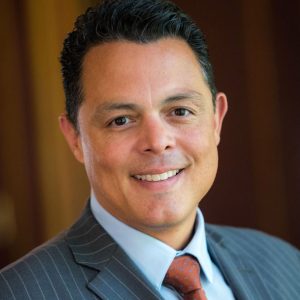John Byrne, a WP alum of 1974, remembers his days at the Beacon like they were yesterday—late nights in the newsroom, the thrill of breaking a big story. Now, more than 50 years after graduating from William Paterson, he’s giving back, funding a dedicated space for the student newspaper. While Byrne believes in supporting his alma mater, he sees fundraising as essential.
William Paterson University’s Office of Alumni Engagement and Philanthropy plays a crucial role in promoting alumni involvement and raising funds to support students. But is the emphasis on financial donations outranking other meaningful ways alumni can contribute?
As WP faces budgetary challenges, the need for increased philanthropic support has grown. While securing donations is essential for funding scholarships, campus programs and even facilities, some alumni feel disconnected from the university’s outreach efforts. Therefore, questions like whether the focus should shift to encouraging stronger personal connections and engagement opportunities beyond fundraising arise more frequently.
Roy Garcia, Assistant Vice President for Alumni Engagement and Philanthropy, told the Beacon in a recent interview that philanthropy is more than just monetary donations. “Philanthropy is not just money. It is time and talent,” he said. Garcia believes in fostering meaningful relationships with alumni, encouraging them to give back through mentorship, event participation, and networking opportunities. However, he acknowledges a common misunderstanding: “People think it’s only about money, but it’s about making a difference.”
The Office of Alumni Engagement and Philanthropy is part of the Office of Institutional Advancement, which is led by vice president Pamela Ferguson. Garcia’s team collaborates with departments such as Career Development, WP Athletics, and others
to create meaningful opportunities for alumni to stay connected.
Programs like the Pesce Mentoring Institute allow alumni to give back through mentorship rather than just financial contributions. For instance, compared to the 71% of WP graduates of 2020 who did not participate in the mentorship program, 97% of Pesce Mentees said that they are employed or planning to enroll in graduate school.

Photo courtesy of LinkedIn
Junior Noel DeBonta, who plays for WP’s field hockey team, has generational ties to the university—both of her parents and her sister are alumni. While she feels a deep connection to William Paterson, she is skeptical about donation requests. “Asking me for money wouldn’t be good because we already paid so much to go here,” she said. Instead, she believes engagement should be prioritized through social events: “Dinner, banquets, a barbecue, highlighting alumni from sports teams or clubs would be a better way to bring people back.”
While some alumni, like Byrne, appreciate their WP experience, others have stronger criticisms. A 2010 alumnus, who asked to remain anonymous, said he was frustrated to receive donation requests immediately after commencement. “I was called almost immediately after I graduated and asked for money,” the alum said. “I blocked their number after that first call. It’s been close to 15 years. When I unblocked it recently, I got another call asking for money—I just hung up.” For him, the ask felt transactional rather than part of a broader effort to maintain alumni engagement.
Contrary to the 2010 alum, Byrne said he sees fundraising in a different light and suggested that WP is not aggressive enough in soliciting donations. He advocates for student volunteers to call alumni. “They should follow up on the emails to seek money.”
At the same time, he leads by example when it comes to giving back. “I have always been interested in doing something for William Paterson because it marked a really important part of my life and set me on a great journey,” Byrne said. He recently signed a contract for a significant donation to support the Beacon. “You need a home, a place to hang out and build community,” he added.
Reaching alumni remains a challenge. DeBonta noted that although she is aware of some alumni events through social media, her parents and sister are often left in the dark. “I believe it’s not broadcast enough,” she said, emphasizing the need for better promotion of alumni engagement opportunities beyond donation requests.

Photo courtesy of William Paterson University
With WP’s budget deficit looming, the university continues to seek donations to support its programs and students. The increasing reliance on alumni contributions to fund scholarships and academic programs makes this an urgent issue. The tension between fostering community and soliciting financial support raises important questions: Can the university shift its engagement approach to make alumni feel like more than just a funding source? Can it balance financial necessity with genuine community-building?
Garcia remains hopeful. “William Paterson is a catalyst for the American Dream,” he says. “It’s about providing social, multigenerational impact.”
According to the 2024 Social Mobility Index by CollegeNET, which tracks the extent to which colleges and universities educate economically disadvantaged students at lower tuition rates and graduate them into good paying jobs, William Paterson ranks 54th out of 1,205 colleges and universities in America, underscoring its role in fostering student upward mobility.
However, as the university moves forward, the challenge will be ensuring that alumni engagement is about more than just money—it’s about keeping the spirit of WP alive for generations to come.